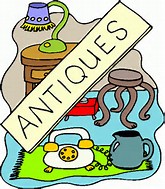| “Sometimes, if you’re a lucky journalist, something you write strikes a chord. I’m grateful to say that just happened with my Next Avenue blog post, “Sorry, Nobody Wants Your Parents’ Stuff,” about challenges boomers and Gen X’ers are facing finding homes for their late parents’ heirlooms (as I experienced after my father died last fall).
This post about a heartbreaking, pervasive problem struck a minor chord in a major way: It was the most viewed article in Next Avenue’s history, garnering more than 1.5 million views, 32,000 Facebook shares and 5,500 comments, and was printed over 3,100 times.
I want to share some of the poignant, funny, helpful and angry comments Next Avenue received (shortened for brevity in some instances), as well as a few suggestions readers offered for selling, donating or passing on parents’ possessions.
The Facebook comments mostly fell into one of five camps: “I so relate,” “This is so sad and difficult,” “I feel guilty about what I had to do,” “I won’t let this happen to my kids” and “You’re wrong! People want these possessions.” A few plaintively seemed to ask if anyone wanted the particular items they needed to unload. For instance, Nina Mizrahi posted: Does anyone know of folks who collect old crystal set “radios?” Model Steam engines? Colleen Ferguson queried: Anyone want a 1980s soft-sided waterbed?
We will not leave a mountain of stuff for our daughter to deal with. Period.
— Deborah Laister Wagge
I So Relate
Many people said things like “This is spot on!” and “Living it.” Others, like these, got personal:
Merilee Campbell Bridgeman: My children have already told me they don’t want any of our antiques because they don’t care for ‘brown furniture.’ Drives me crazy that they prefer cheap furniture made of pressed sawdust and glue, but what’s a mom to do?
Julie Cranford: That’s why my mother’s beautiful and very valuable antique furniture is still in storage. Unfortunately, I brought home my mother’s, grandmother’s and even great grandmother’s silver, china and glassware. With three boys, I’m sure it will all end up in a dump somewhere.
Annice Laws: My mother… amassed an unbelievable amount of stuff over her lifetime and always preached to me the “value” of this or that…. Well, I’ve learned that nothing is worth anything if no one wants it. My siblings and I kept the select items we were personally interested in, and for the rest of it I’ve held yard sales, put things on consignment, gone to pawn shops, posted on Craigslist and eBay, so on and so forth, but have never made more than a few dollars. I couldn’t even find buyers for her genuine gold and gem stone jewelry and had to liquidate it for pennies at one of those “we buy gold” places. I still have a storage unit full of stuff 20 years after her death because in her memory I can’t bring myself to just give it away.
This Is So Sad and Difficult
Connie Guerrera Maida: Purging my parent’s home of all their possessions was the most daunting task I ever had to do!!
Amy Kelley Warth: It is so overwhelming. Piles and piles of boxes in our basement that are completely random/disorganized… But 95 percent of it is “junk” — nobody wants it. So frustrating and stressful…Just when we got our house settled and had a minimalist lifestyle we were comfortable with, we inherited all this STUFF!
Ellen Schrader Stutts: Just went through this with my 91-year-old mother’s things. Gorgeous refinished furniture that went for fire sale prices at an estate sale… We ended up donating truckloads of stuff to the local shelter and thrift store. Heartbreaking.
Craig Unruh:. I know of three old men who were liquidating their collections and were sadly disappointed in the lack of interest. They collected French Art Posters, Royal Doulton Jugs, and rare Lladros. All their lives they saw the value of these things go up and up, and figured they were building an inflation-proof collection. So did a lot of other collectors of this stuff, but they all need to sell around the same time and not nearly as many buyers as there used to be.
Amy Stoopack Zipkin: In my experience, good luck involving a parent while they are still alive. Perhaps more productive to confer with sibling(s) to begin to establish realistic expectations for the inheritance.
Sofia Dakos: I am afraid we will destroy MANY items that will be sought after in future years and we will be moaning “why did I ever get rid of …”
Nancy Shire: What do you do with the hundreds of pictures of the grandkids taken when they were babies, of which there are probably dozens of duplicates? Who wants my Santa Claus collection? What about all the books? What about my daughter’s Girl Scout awards and sash — how can I throw them away? I guess they’ll all have the joy of plowing through everything when the time comes.
Soosi Day: In the future there will be no personal history … only ‘in the moment’ … no graves, no personal letters, no hard copies of long-lasting photographs, no heirlooms …. no footprints in the sand.
Marie Stout Newlin: It’s a good thing our deceased loved ones can’t see what’s happening to their prized possessions. Many of them struggled through financial woes and “made do” during hard times. To see their things pitched and tossed would be heartbreaking for them.
I Feel Guilty About What I Had to Do
Darlene Davies: My mother made me promise to never get rid of certain items so now they sit in the basement because I would feel guilty selling or giving them away.
Donna Reis: My mother was a serious collector of imported English Victorian antique furniture and spent her weekends throughout my life polishing it to an inch of its life … I cried when her table and chairs were loaded onto a trailer- I hated them but I loved them as well!
I Won’t Let This Happen to My Kids
Cindy Farnsworth Munoz: After having to get rid of my parents “stuff” twice when I lived in another state, I am more determined than ever not to leave that job for my daughter. I live minimally and continually purge. Something new comes in the house, something old goes out … Then when it’s me, her job won’t be insurmountable.
Michelle Rafter: We’ve been through this twice in five years, first when my in-laws moved into assisted living and last spring when my parents downsized … The process made me more diligent about cleaning out cupboards and drawers of my own house so my kids don’t have to.
James Massey: Just went through this for a lifelong friend. It was an ordeal to say the least… The experience impressed me enough to go through my own mess and rid the house of all the needless junk, and donate all (or most) of the items I hadn’t used for a year or more … Though, I couldn’t part with more than 10 or so of my books. Sorry kids… you’ll have to disperse them amongst yourselves after I’m gone. Or better yet, read some of them…
Deborah Laister Wagge: My husband and I recently moved to a new city to be close to grandchildren. I purged like crazy before the move. We will not leave a mountain of stuff for our daughter to deal with. Period.
You’re Wrong! People Want These Possessions
Jan Snodgrass: Not true. There is a big market for antiques!
Arlene Toolas-Villeneuve: I have to say, this has not been my experience at all. Ever had a garage sale? It all gets bought up.
Marcia Vande Vusse: The crochet hook my midwife, Irish immigrant great grandmother brought with her from her Irish home … went to my granddaughter age 15 who loves to crochet … count the generations … six and it is cherished again.
Tracy Fennell Sault: I’ve been working in a secondhand store the last two years. I’ve seen Millennials come in searching for retro or vintage furniture. Last fall I had a couple from Ohio come in looking for a sled like the one in Citizen Kane (Rosebud). Generations are looking for ways to reconnect.
Patricia Kane Bahr: I’m part of a vintage group on FB [Facebook] and lots of people love old furniture. They usually paint it and the results are gorgeous and trendy right now.
Bj Shelby: I believe it is the responsibility of the living to “proudly” dispose of their family members’ accrued stuff … Articles like this one are tagging The Parents’ stuff as a problem. SHAME!!
Brigette Cook Jones: I guess I must be the “Nobody” — I love antiques, old books and other older pieces. Most of these things are made better, and will hold up longer, than any of the IKEA crap that a young Millennial may be buying. If I can get it inexpensive, you will bet that I would buy a nice antique over some particleboard piece!
Danielle Hatfield: We DO want these items (Gen X here) but all too often the (boomer) family members in charge of taking care of our elders toss treasured items to the curb because *they* don’t want them or want to be bothered with distribution.
Pat Kohlenberger Ingham: So not true. I loved going through my parents stuff and my grandparents stuff! Found $600+ in silver coins in a suitcase, letters, diaries, pictures, memories, vintage clothes, etc. Sure there were rubber band collections, a lot of 1-inch long pencils, etc. But man, the memories!
Advice for Others With Their Parents’ Stuff
In addition to the tips below from Facebook posters, I heard from three professionals in fields related to this subject.
Ian Hammond, a Portland, Maine assistant manager at Habitat for Humanity’s ReStore, a nonprofit store and donation center, noted that ReStores accept donations of furniture and many other home furnishings and many offer pickup, usually at no cost.
Barry Gordon, founder of an online auction platform called MaxSold, told me his company comes to a person’s home, photographs and catalogs what’s available to sell and offers everything online through an auction, marketed to local prospects. “Ninety-eight percent of everything we offer is bought, picked up and taken away,” said MaxSold CEO Sushee Perumal. The company charges $10 per lot with a maximum 30 percent commission and a minimum fee of $1,000 ($300 minimum if you do the photography and cataloging). “We’re not the best option for someone with one or three things, but if you have 35 to hundreds of items, we’re a very good fit,” said Gordon.
Pam Pacelli Cooper, president of Verissima Productions, which creates video biographies to “preserve emotional memories for future generations,” recommends asking your parents to tell you about the personal significance of their possessions. “It is always a surprise — the worthless old rubber bathing cap elicits a vibrant story about visits to the local beach as a teenager and the lifelong friendships that were formed there.” Cooper adds: “Even subjects in the early and middle stages of dementia can remember long-forgotten stories, brought into focus by holding an object or looking at a photograph.”
And some advice from readers:
Beth Shanna Carpenter: My grandparents resell china and crystal professionally. Always check with Replacements, Ltd. — they adjust their rates based on what people are looking for.
Cynthia Broze: My family had large Christmas gatherings every year at my grandparents house. My grandmother used her china, that she saved hard for, at these gatherings. When she died she left it to me and I kept it for 30 years … I emailed to all nieces, her great grandkids, cousins, etc., saying … Hey remember that china? I split it up between many who were happy to take a plate, cup or setting.
Susan Millikin Gorman: We need to teach our children when they are small, what good furniture is. What will last. I took my daughter to a Cherry furniture factory at age 10. She was shown what to look for when buying furniture.
Julie Popovic: Please call your locally owned antique shops or vintage stores first. Small businesses like these often will come in and buy many things you think are worthless.
Diane DiVittorio Strauss: When my mom moved out of her large house into an apartment, I made a quick FREE sign with a board, a pole and stick-on letters. I posted it outside near the road and every day I put a small pile of things that normally would have been discarded. It was so much fun to stand by the window and watch neighbors and passersby “go shopping” in our free pile! Young families took our scrap lumber, guys in pickup trucks took the ladders and handcarts, all the gardening supplies were scooped up, etc, etc. This was much better than hauling it all to the dump.
Marleen Allen Varner: In some communities there are organizations which can use some furniture when setting up homes for formerly homeless folks.
Teresa Rogers: If your family has war letters in its possession, you should consider donating them to the Center for American War Letters at Chapman University, rather than tossing them out.
Does Our Stuff Really Matter?
And I’d like to finish with two comments I especially enjoyed:
Barb Ebert: It doesn’t bother me that my girls are not interested in our stuff. It’s just stuff, really.
Veronica Villano: Personally when I die if someone enjoys something of mine great but it’s not me!! Do whatever you want with my stuff after I die but keep a good memory of me in your heart!!” |
 A recent story from the United Kingdom talked about the rise of family feuds related to inheritance. The number of cases – 116 – reaching the High Court in 2015 broke all past records.
A recent story from the United Kingdom talked about the rise of family feuds related to inheritance. The number of cases – 116 – reaching the High Court in 2015 broke all past records.



